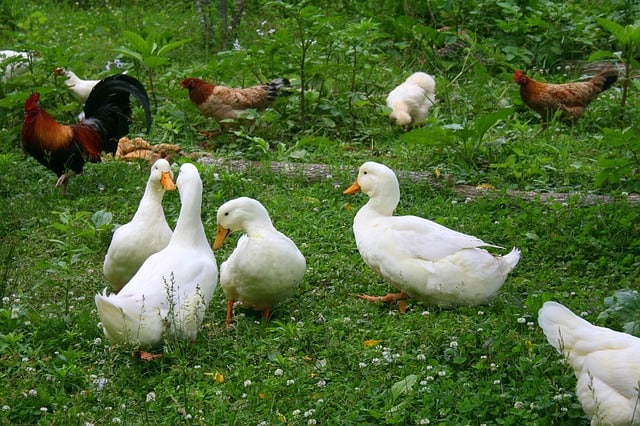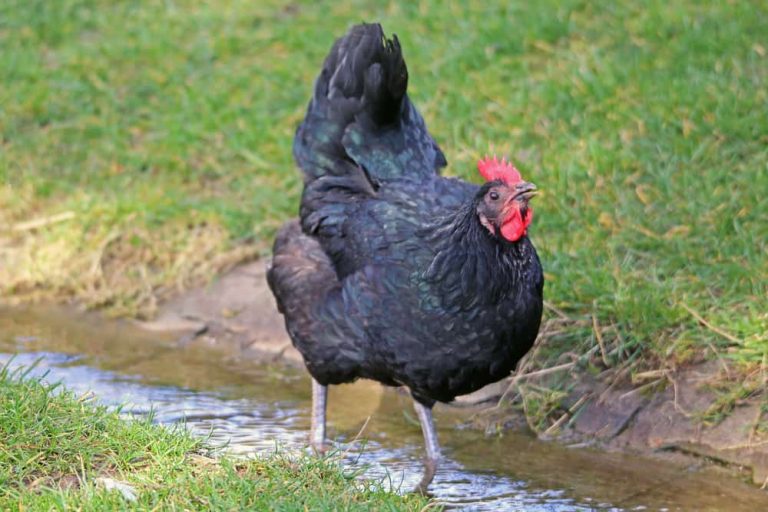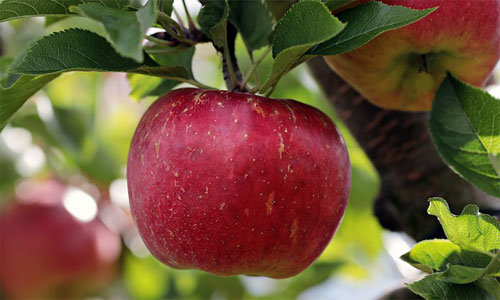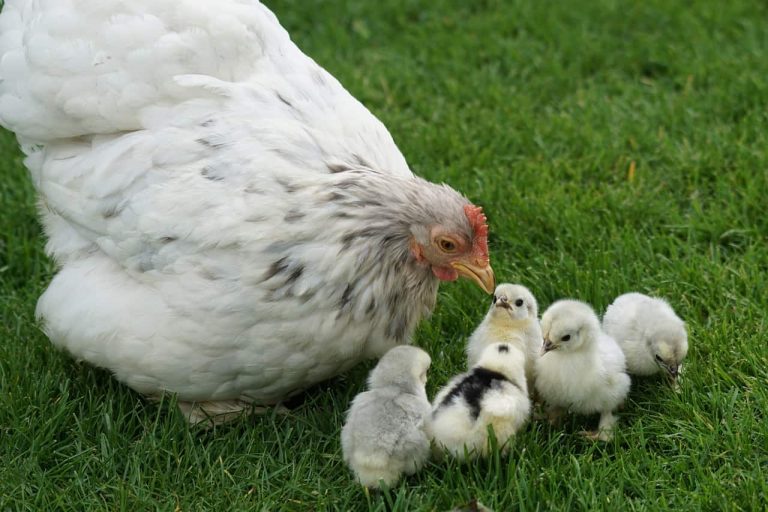Chickens are much like their human masters when it comes to nutrition. Most of the things we eat as humans can also become delicacies for them. This does not mean we should replace the recommended chicken feed with our own diet.
Chickens can technically eat small amounts of cornbread without immediate harm, but it’s not the best choice for their diet. Chickens have specific dietary requirements, and their primary diet should consist of balanced chicken feed that provides the necessary nutrients for their health and egg production.
Contents
Cornbread Main Ingredients
The benefits of any food depend on the main ingredients it contains. Cornbread is made up of several nutritious ingredients that are helpful to the body of the organism eating it. According to nutritional analysis, cornbread is typically made from a few basic ingredients, including:
- Cornmeal: The main ingredient in cornbread, cornmeal is a coarse flour ground from dried corn kernels. It provides the characteristic flavor and texture of cornbread.
- Flour: Some recipes might include a small amount of all-purpose flour or other types of flour to help bind the ingredients together and give the bread structure.
- Leavening Agents: Baking powder and/or baking soda are used to help the cornbread rise and become fluffy.
- Liquid: This can be milk, buttermilk, or water. The liquid helps create the batter’s consistency and aids in mixing the ingredients.
- Eggs: Eggs are added to provide moisture, and structure, and help bind the ingredients together.
- Fat: Butter, oil, or other fats add moisture and flavor to the cornbread.
- Salt: A small amount of salt enhances the overall flavor of the cornbread.
- Sweeteners (optional): Some cornbread recipes include sugar or honey to add sweetness. This can vary based on regional preferences.
Potential Health Benefits of Cornmeal in Chicken
Each of the ingredients listed above has specific nutritional benefits for your birds, but only if fed in moderation and prepared in an appropriate way.
Cornmeal is often used as a feed ingredient for chickens due to its nutritional composition and potential health benefits. We have looked into these benefits and realized you need them for the proper development and productivity of your flocks.
Here are the most important of these benefits:
Energy Source
Cornmeal is rich in carbohydrates, particularly starch. Carbohydrates provide a readily available source of energy for chickens, which is essential for their growth, metabolism, and overall activity.
Weight Gain and Growth
The high energy content of cornmeal can contribute to healthy weight gain and proper growth in chickens. This is especially important for meat-producing breeds.
Digestibility
Cornmeal is relatively easy for chickens to digest due to its carbohydrate composition. This can result in efficient nutrient absorption and utilization, promoting overall health and performance.
Vitamins and Minerals
Cornmeal contains essential vitamins and minerals such as B vitamins (particularly niacin), phosphorus, and some levels of vitamin A. These nutrients are important for maintaining good health, bone development, and immune system function in chickens.
Feather and Egg Production
Adequate nutrition from cornmeal can support feather production and help maintain healthy plumage. Additionally, the energy and nutrients provided by cornmeal can contribute to better egg production in laying hens.
Affordability
Cornmeal is often a cost-effective feed ingredient, making it a practical choice for farmers balancing nutritional needs with budget constraints.
Satiety and Behavior
Cornmeal, as part of a balanced diet, can help chickens feel full and satisfied, reducing the likelihood of pecking and cannibalism behaviors that might arise from nutrient deficiencies or hunger.
Considerations Before Feeding Cornbread to Chickens
It’s important to note that while cornmeal can offer these benefits, it should not be the sole source of nutrition for chickens. A balanced diet is crucial for optimal health and performance.
Cornmeal lacks certain essential nutrients, such as amino acids, that chickens need to thrive. Therefore, it should be combined with other feed ingredients, such as soybean meal or other protein sources, to create a well-rounded diet.
Consulting with poultry nutrition experts and veterinarians can help ensure that chickens receive a diet that meets their specific nutritional requirements for their life stage and purpose (meat production or egg laying). It’s also important to consider factors like the age of the chickens, their activity level, and any specific health concerns when formulating their diet.
How to Feed Cornbread to Chickens
Feeding cornmeal to chickens involves incorporating it into their overall diet to ensure they receive the right balance of nutrients. Here’s how you can feed cornmeal to chickens effectively:
Balanced Diet
Cornmeal should be part of a balanced diet with various nutrients essential for chicken health. Cornmeal is primarily an energy source, so it should be combined with other feed ingredients like protein sources (soybean meal, fish meal), vitamins, minerals, and fiber to create a well-rounded feed.
Mixing Feed
If you’re formulating your own chicken feed, you’ll need to mix cornmeal with other ingredients to create a complete feed. The proportion of cornmeal in the mix will depend on factors like the age of the chickens, their purpose (meat or egg production), and any additional dietary requirements.
Age and Purpose
The dietary needs of chickens vary based on their age and purpose. Chicks require more protein for growth, so the proportion of cornmeal in their feed should be lower compared to that of adult chickens. Laying hens may require additional calcium for eggshell production.
Supplementary Feed
Cornmeal can serve as a supplementary feed to provide energy to chickens. However, it shouldn’t be the sole source of nutrition. Always provide a complete feed that meets the specific nutritional requirements of the chickens.
Pelleted Feeds
Commercially available pelleted feeds often contain cornmeal as one of their ingredients. These feeds are formulated to provide the necessary nutrients in a convenient and easily digestible form.
Free-Range Chickens
If you have free-range chickens that forage for some of their food, cornmeal can be offered as a treat. Scatter it in small quantities to encourage natural foraging behavior.
Monitoring Consumption
Keep an eye on how much the chickens are consuming. Overfeeding cornmeal can lead to an imbalance in their diet and potentially result in nutrient deficiencies.
Freshness
Make sure the cornmeal is fresh and not contaminated with mold or pests. Storing it in a cool, dry place can help preserve its quality.
Water Availability
Always provide clean and fresh water to your chickens. A balanced diet requires proper hydration for effective digestion and nutrient absorption.
Consult Experts
If you’re unsure about formulating a proper feed for your chickens, consult with poultry nutrition experts, veterinarians, or local agricultural extension services. They can provide guidance on creating a feed plan that meets the specific needs of your chickens.
Things to Watch out For When Feeding Cornbread to Chicken
Feeding cornbread to chickens can pose certain hazards and challenges due to the ingredients and composition of cornbread. While small amounts of cornbread might be acceptable as an occasional treat, it’s important to be aware of the potential risks:
Imbalance in Nutrients
Cornbread is typically made with cornmeal, flour, sugar, and possibly other ingredients like fats, oils, and flavorings. This composition can result in an imbalanced nutritional profile for chickens. It might lack essential nutrients like protein, vitamins, and minerals that are crucial for their health.
High Sugar and Fat Content
Many cornbread recipes contain added sugar and fats, which are unsuitable for chickens in large quantities. Excessive sugar consumption can lead to health issues, including obesity and digestive problems. High-fat content might also lead to weight gain and other health complications.
Digestive Upset
Chickens have sensitive digestive systems, and sudden changes in their diet can lead to digestive upset and diarrhea. Cornbread’s composition, especially if it contains oils, fats, and spices, can be disruptive to their digestive balance.
Decreased Egg Production
Feeding too much cornbread or foods high in carbohydrates and fats can negatively impact egg production in laying hens. It can interfere with their nutrient intake and overall health, reducing egg laying.
Impacted Crop
Chickens can be prone to crop impaction, where undigested or large food particles accumulate in the pouch-like structure in their throat. Cornbread’s texture and composition could potentially contribute to this problem.
Disruption of Gut Microbiota
An imbalanced diet, such as excessive cornbread consumption, can disrupt the balance of beneficial bacteria in a chicken’s gut, potentially leading to gastrointestinal issues and a lowered immune response.
Loss of Appetite for Proper feeding
If chickens are given too many treats like cornbread, they might fill up on these less nutritious options and not consume their regular balanced feed. This can lead to nutritional deficiencies.
Behavioral Issues
If chickens are given cornbread too frequently, they might develop unhealthy behaviors like pecking and fighting over treats. This can lead to aggression and injuries among the flock.
Mold and Spores
If the cornbread is not stored properly, it can become moldy or spoiled. Feeding chickens spoiled food can cause illness.
Choking Hazard
Depending on the texture and size of the cornbread, there is a risk of choking, especially if the pieces are too large.
Conclusion
A cornbread treat for your chicken is a great way to give the birds a healthy treat. Serving it the right way and in the correct amounts can help boost the rate of growth, lean body weight, and egg production.
If you are not sure about the amount of cornbread to feed your flock, then you need to consult with a veterinary nutritionist to ensure you do not overfeed them.





